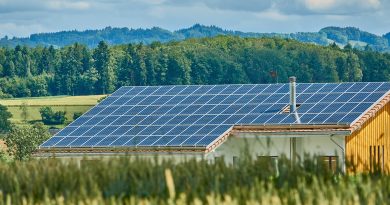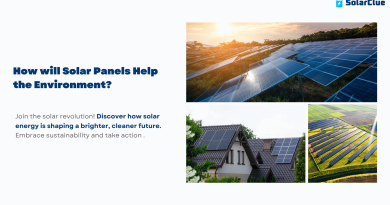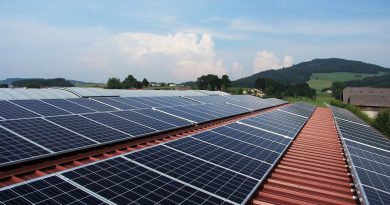What are some off-grid alternatives to solar power?
As the demand for renewable energy sources continues to grow, many people are turning to off-grid alternatives to power their homes and reduce their carbon footprint. While solar power is one of the most popular choices, there are other options available for those who want to generate electricity without being dependent on the grid. This blog will explore some of the off-grid alternatives to solar power that you can consider for your energy needs.
Table of Contents
Wind Power
This power is a reliable and well-established alternative to solar energy, especially in areas with consistent wind patterns. Wind turbines harness the power of the wind to generate electricity. These turbines consist of a tower with blades mounted on top that spin when the wind blows. The spinning motion generates electricity, which can be stored in batteries or used directly to power homes and other devices. Wind power systems can be installed on rooftops or in large open spaces, making them versatile and adaptable to different environments.
One advantage of wind power is that it can generate electricity around the clock, even during cloudy or rainy days when solar panels may not be as efficient. However, wind turbines need to be located in areas with sufficient wind speeds, typically above 5 to 6 meters per second, for optimal performance. Additionally, noise and visual impacts, as well as potential interference with local wildlife, must be taken into consideration when planning wind power installations.
Hydroelectric Power
Hydroelectric power harnesses the energy of moving water to generate electricity. This off-grid alternative is particularly suitable for areas with rivers, streams, or other water sources. A hydroelectric system consists of a turbine, which is either placed directly in the flowing water or driven by a specially designed diversion channel. The flowing water turns the turbine, generating electricity that can be used immediately or stored in batteries.
Hydroelectric power is a reliable and consistent source of electricity as long as the water source remains flowing. It also has the advantage of being able to generate electricity 24 hours a day, making it a sustainable option. However, hydroelectric systems often require substantial upfront investment and can have a significant impact on the ecosystem and fish populations in the surrounding area. Therefore, careful consideration and thorough environmental impact assessments are necessary before implementing such systems.
Biomass Power
Biomass power involves converting organic materials, such as agricultural waste, wood, or energy crops, into heat or electricity. This off-grid alternative is renewable and carbon-neutral since the carbon released during biomass combustion is offset by the carbon absorbed during the growth of the organic materials. Biomass power can be generated through a variety of technologies, including direct combustion, gasification, or anaerobic digestion.
One of the advantages of biomass power is its ability to provide consistent and reliable energy, regardless of weather conditions. Additionally, biomass power systems can be integrated into existing heating systems, making them a good option for both residential and commercial use. However, it’s essential to ensure a sustainable supply of biomass and consider the emissions produced by the combustion process, as poorly managed biomass systems can have negative environmental impacts.
Geothermal Power
Geothermal power utilizes the natural heat from beneath the Earth’s surface to generate electricity. This off-grid option relies on accessing the heat energy stored in the earth through geothermal power plants. These plants use heat exchangers and steam turbines to convert the thermal energy into electricity, which can then be distributed and used to power various devices. Geothermal power is a reliable and consistent source of electricity since it does not rely on weather patterns.
One significant advantage of geothermal power is its small environmental footprint compared to fossil fuels or large-scale hydroelectric dams. Geothermal power plants produce minimal greenhouse gas emissions and have long operational lifetimes. However, the availability of geothermal resources is limited to certain areas with suitable geological conditions, which may restrict its widespread adoption as an off-grid alternative.
Conclusion
Consider SolarClue® as your guide while exploring alternative off-grid energy sources. While solar power remains a popular choice for off-grid electricity generation, it’s crucial to evaluate other alternatives that may better suit your circumstances. Delve into options such as wind power, hydroelectric power, biomass power, and geothermal power, each offering reliable and sustainable alternatives to solar power.
Every alternative comes with its unique advantages and considerations. Assess factors like the availability of resources, environmental impacts, and upfront costs before making a decision. With SolarClue® by your side, you gain insights and guidance to navigate through these choices effectively. By embracing off-grid alternatives, you not only reduce your dependence on the grid but also actively contribute to a greener and more sustainable future. Take the first step towards energy independence and environmental stewardship with SolarClue® leading the way.
Frequently Asked Questions
Alternatives include wind turbines, hydroelectric systems, biomass generators, and portable power stations.
Wind turbines convert wind energy into electricity, offering a reliable off-grid power source.
Yes, small-scale hydroelectric systems can harness flowing water to generate off-grid electricity.
Biomass involves using organic materials like wood or agricultural residues to produce off-grid energy.
Yes, portable power stations, often with solar charging capability, provide versatile off-grid energy solutions.
Consider factors like location, resource availability, and energy needs to select the most suitable alternative.
Installation varies; while some alternatives may need professional setup, others, like portable stations, are DIY-friendly.
Regular checks for wear, cleaning, and system monitoring are essential for optimal off-grid power system performance.
Yes, combining multiple alternatives, such as solar and wind, can provide a more reliable off-grid power solution.
In some regions, incentives, rebates, or tax credits may be available to promote off-grid power alternatives.



